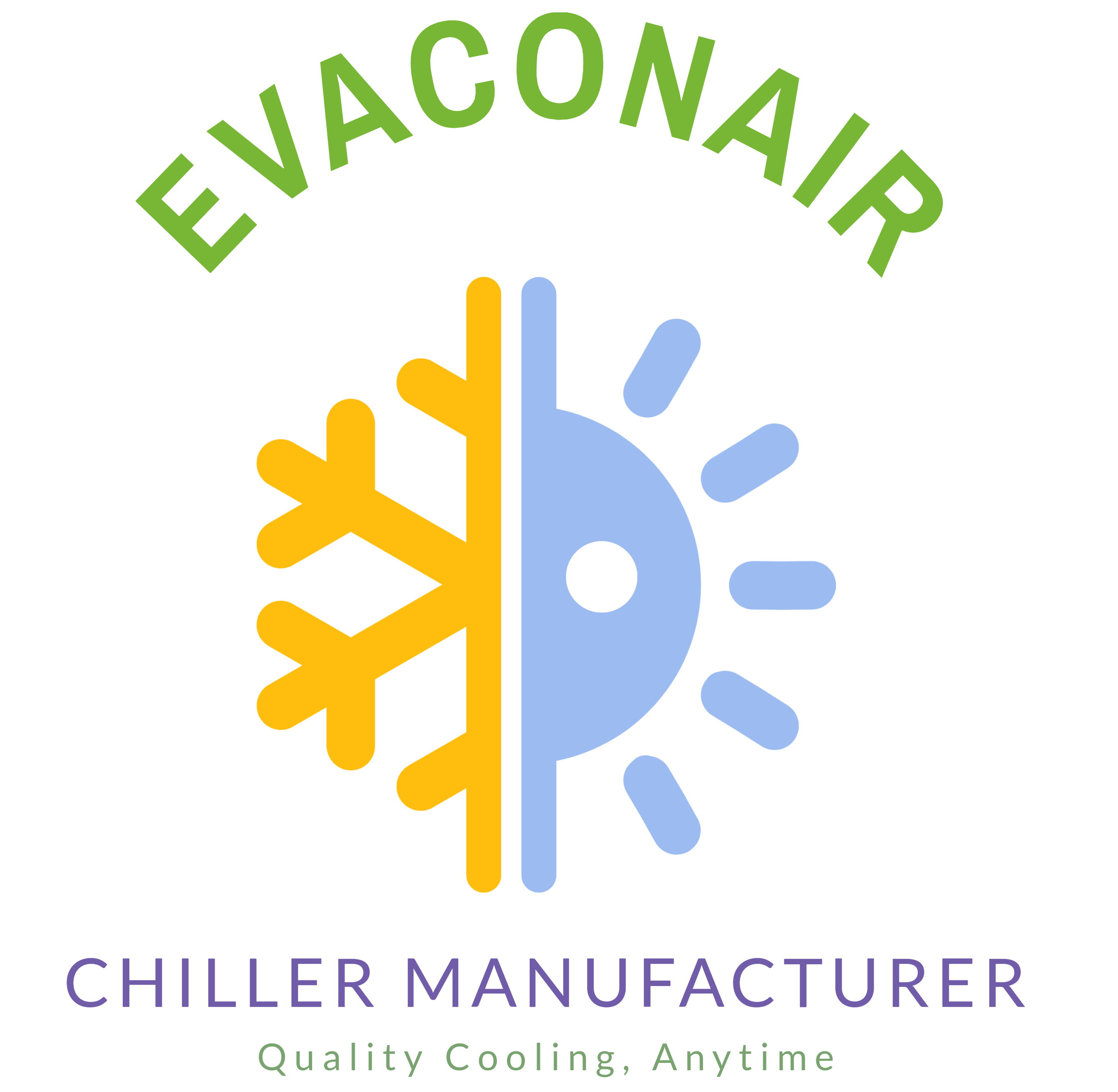Blog
What is the Safety of a Chiller Plant?
Safety is a crucial aspect of operating a chiller plant to ensure the well-being of personnel, the integrity of the equipment, and the overall efficiency of the facility. Proper safety measures help prevent accidents, reduce downtime, and maintain optimal performance. Here are key safety considerations when managing a chiller plant.
Key Safety Measures in a Chiller Plant
1. Regular Maintenance and Inspection
- Routine Maintenance: Regular maintenance of the chiller and its components, such as Air-Cooled Water Chillers and Water Cooled Screw Chillers, is essential to prevent mechanical failures. Scheduled inspections help identify potential issues before they lead to significant problems.
- Inspect Safety Devices: Ensure all safety devices, including pressure relief valves, temperature sensors, and flow switches, are functioning correctly. These devices are crucial for preventing system overpressure, overheating, or inadequate flow conditions.
2. Proper Handling of Refrigerants
- Refrigerant Safety: Chillers use refrigerants that can be hazardous if not handled correctly. Always follow proper procedures for handling, storing, and disposing of refrigerants. Ensure that technicians are trained in refrigerant safety to avoid leaks and exposure.
- Leak Detection Systems: Install and regularly check leak detection systems to quickly identify any refrigerant leaks, which could be harmful to personnel and the environment.
3. Electrical Safety
- Proper Grounding and Wiring: Ensure that all electrical components, including those in Air Cooled Screw Chillers and Water-Cooled Water Chillers, are properly grounded and wired to prevent electrical shocks or fires.
- Lockout/Tagout Procedures: Implement lockout/tagout procedures during maintenance to ensure that the chiller is de-energized before any work begins. This prevents accidental startup and ensures the safety of maintenance personnel.
4. Training and Certification
- Employee Training: All personnel operating or maintaining the chiller plant should be adequately trained in the system’s operation and emergency procedures. Training should include the safe handling of auxiliary equipment like Hot Air Dryers, Vacuum Hopper Loaders, and Dehumidifiers.
- Certification: Ensure that operators and technicians hold the necessary certifications for handling refrigerants and operating complex chiller systems.
5. Emergency Preparedness
- Emergency Shutdown Procedures: Establish and practice emergency shutdown procedures that can be quickly executed in case of a system failure or other emergencies.
- Fire Safety: Equip the chiller plant with appropriate fire detection and suppression systems. Ensure that fire extinguishers are readily available and that staff know how to use them.
6. Environmental Considerations
- Refrigerant Management: Follow guidelines for the proper disposal of refrigerants to minimize environmental impact. This includes working with certified Chiller Dealers In Ahmedabad for safe refrigerant disposal and replacement.
- Noise and Vibration Control: Implement measures to control noise and vibration from chiller operation, protecting workers’ hearing and reducing structural stress on the building.
Conclusion
The safety of a chiller plant is paramount to protecting both personnel and equipment while ensuring efficient operation. By adhering to proper maintenance schedules, handling refrigerants safely, implementing electrical safety protocols, and ensuring that all staff are adequately trained, you can minimize risks and ensure a safe working environment. Whether you are managing an Air-Cooled Water Chiller in Ahmedabad or a Water-Cooled Screw Chiller in Ahmedabad, these safety practices are essential. For more information on chiller safety and maintenance, visit our products page.
